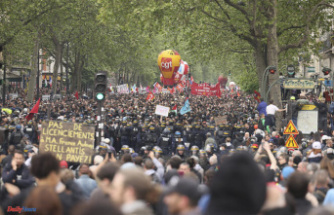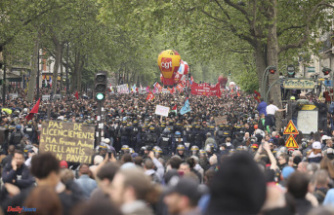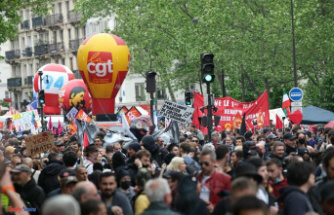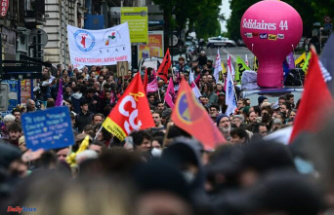China's billionaires' club has seen a lot of decline this year. Not only the weakening global economy is leaving its mark on the balance sheets. Alibaba founder Ma and other super-rich people in the country are paying dearly for the policies of their iron head of state.
The eight of the ten richest Chinese have collectively lost nearly $85 billion in wealth since the beginning of the year. According to the Bloomberg Billionaires Index, only two members in the top 10 billionaires have increased their wealth: Zhang Yiming, founder of ByteDance - the social media group behind TikTok - and Collin Huang, founder of Chinese e-commerce -Giant Pinduoduo.
Zhong Shanshan, the chairman of the mineral water company Nongfu Spring, still leads the Chinese list of the rich with the equivalent of a good 64 billion US dollars, but his wealth has shrunk by 16 billion dollars compared to the beginning of the year. Only the boss of the Internet giant Tencent, Ma Huateng, who is also known internationally as Pony Ma, can surpass this. His net worth shrank by a whopping $20 billion this year. And Alibaba boss Jack Ma wasn't immune to double-digit losses either. The third richest man in China lost almost 10 billion dollars.
None of them should be satisfied with these balance sheets. As Chinese entrepreneurs, they are currently fighting not only against the global recession risks, which are creating headwinds worldwide. Unlike their Western colleagues, they also have to deal with the difficult framework conditions for entrepreneurs in China - which doesn't bode well for the future either.
Above all, Beijing's ongoing rigorous zero-Covid policy - which goes hand in hand with tough lockdowns - is leaving deep scars on the Chinese economy. It stalls growth and collapses consumer demand. Economists therefore only expect the People's Republic to grow by 3.2 percent this year. Beijing would not only miss the officially announced target of around 5.5 percent. It would also be one of the weakest years of growth for the People's Republic in almost half a century.
The strict zero-Covid policy is "like lead" on the economy, as Jens Hildebrandt, Executive Board Member of the German Chamber of Commerce (AHK) in China, recently put it. Guanghzou, for example, the Chinese metropolis, which is also known as the "factory of the world", is currently struggling with the worst virus outbreak it has ever seen. The city is mostly locked down. The conditions in a Foxconn factory, from which trapped workers called for help on social media and then fled, recently showed how dramatic the zero-Covid measures in China are. The important Apple supplier produces 70 percent of all iPhones worldwide. Apple now expects fewer iPhone 14 models to ship than expected.
Although the number of corona cases in China is still low in global comparison, companies are suffering and the skid marks can no longer be overlooked, Prime Minister Xi Jinping wants to stick to his rigorous course. He assumes that the country will nevertheless remain on course for growth.
In reality, however, China's economic recovery is likely to be on shaky ground. The fact that market reformers are no longer represented in the new leadership team of the CP, for example, was acknowledged by investors with severe price losses immediately after Xi was confirmed for a third term as Secretary General of the Chinese Communist Party. The stock market quake alone cost the country's richest of the rich tens of billions within a day, Bloomberg reported.
Apparently, Beijing does not find this worrying. Xi makes no secret of his willingness to pay a heavy price for his political agenda. Loss of prosperity in certain areas is desired. One of the country's most important goals for the next 15 years is "common prosperity," he announced at the party conference. Not surprisingly, the sectors with the greatest concentration of wealth, real estate and technology, are the main thorns in the side of the leadership in Beijing. In the tech sector, wealth has already "almost halved" due to a flood of new regulations, according to the "Financial Times" Andrew Kemp Collier, managing director of Orient Capital Research.
However, the leadership in Beijing remains true to its course. She is doing everything she can to continue to assert her claim to power. If the measures were initially concentrated on state-owned companies or the army, today it is the financial and tech sector. This also includes the fact that their billionaires disappear from the scene.
It is still not known where Alibaba boss Jack Ma was for three months when there was no public sign of life. What is known, however, is that China's largest companies, including Alibaba and Tencent, have changed strategies under pressure from above or pledged funds for social responsibility programs in line with politics. The fact that China's strongman Xi brought the leadership into line at the party conference is more likely to hurt the billionaires' profits in the future.












